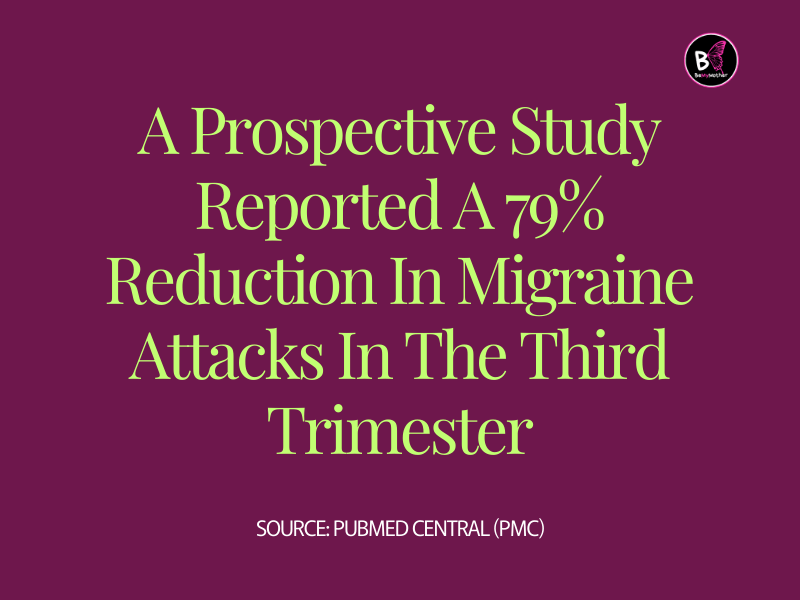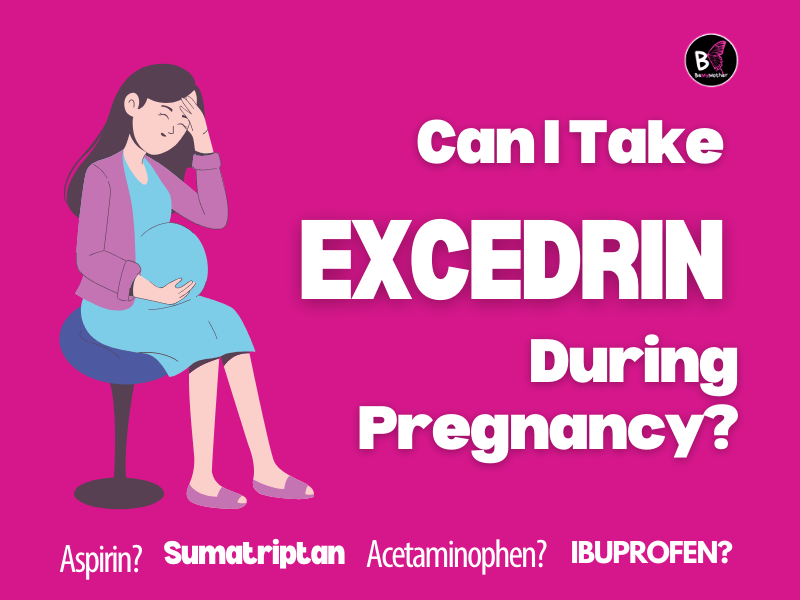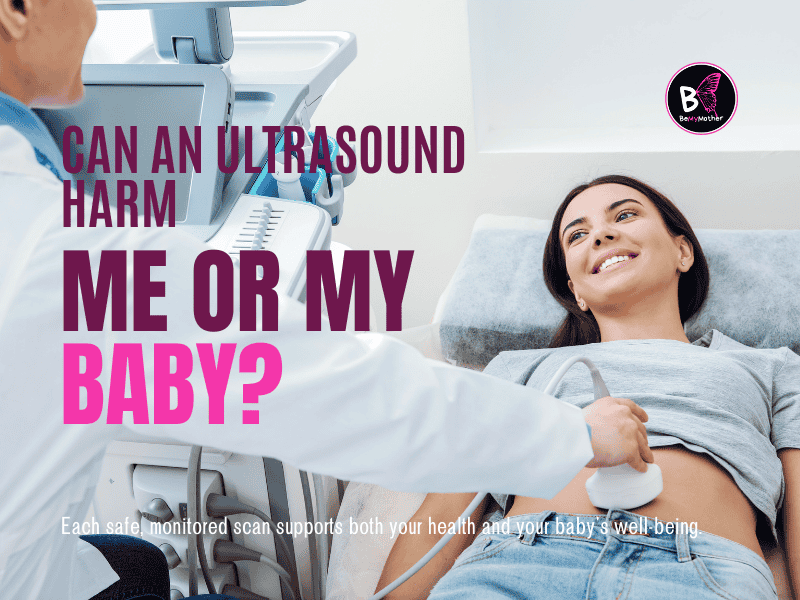📌 Quick Answer: No, Excedrin is not recommended during pregnancy due to its aspirin content, which may cause complications. Always consult your doctor for safer headache relief options.
Migraines and headaches can be incredibly frustrating, especially during pregnancy, when treatment options may be limited. One common question many expectant mothers have is: Can I take Excedrin during pregnancy? In this article, we’ll explore this question and address concerns with research-backed insights, ensuring you make informed decisions for your health and your baby’s well-being.
Can I Take Excedrin During Pregnancy?
Excedrin is a popular over-the-counter medication for headaches and migraines. However, its safety during pregnancy depends on its formulation and the stage of pregnancy. Excedrin products often contain aspirin, acetaminophen, and caffeine.
- Aspirin: Not recommended in high doses as it may increase risks of bleeding, miscarriage, and complications in the third trimester.
- Acetaminophen: Generally considered safe when used as directed.
- Caffeine: While small amounts are usually acceptable, excessive intake during pregnancy can affect fetal development.
🔍 Research Insight: The U.S. Food and Drug Administration (FDA) advises against the use of NSAIDs, including aspirin, at 20 weeks gestation or later. This is due to the risk of fetal kidney problems, which can lead to low levels of amniotic fluid and potential complications. The FDA recommends avoiding NSAIDs during this period unless deemed necessary by a healthcare provider.
Source: FDA.GOV
What’s in Excedrin, and Why Does It Matter in Pregnancy?

Excedrin’s active ingredients play a crucial role in determining its safety for pregnant women:
| Ingredient | Function | Pregnancy Risk |
| Aspirin | Anti-inflammatory, pain relief | High doses linked to miscarriage and bleeding risks |
| Acetaminophen | Pain relief, fever reducer | Generally safe when used in recommended doses |
| Caffeine | Stimulant reduces fatigue | Excessive amounts may affect fetal growth |
Understanding these ingredients helps expectant mothers weigh the risks and benefits of using Excedrin during pregnancy.
🔍 Research Insight: Moderate caffeine consumption, defined as less than 200 mg per day, is not associated with an increased risk of miscarriage or preterm birth. However, since Excedrin contains caffeine, it’s important to monitor overall caffeine intake from all sources to stay within recommended limits during pregnancy.
Source: drugs.com
Safe Migraine Treatments During Pregnancy
Managing migraines during pregnancy can be challenging. Fortunately, there are safer alternatives to Excedrin, including:
- Acetaminophen: Approved by most health experts for managing pain and fever.
- Prescription Medications: Drugs like sumatriptan may be prescribed for severe migraines under medical supervision.
- Natural Remedies: Relaxation techniques, hydration, and cold compresses can offer relief.
🔍 Research Insight: Acetaminophen is generally considered safe for use during pregnancy and is often recommended as the first-line treatment for mild to moderate pain, including headaches. Its safety profile makes it a preferable option over NSAIDs during all trimesters.
Source: MEDICINESINPREGNANCY.ORG
💡 Related Article: Wondering if Dramamine is safe during pregnancy? Learn the facts about managing nausea and motion sickness without worry.
Who Should Not Take Excedrin During Pregnancy?
Certain conditions increase the risks associated with Excedrin, making it unsuitable for some pregnant women. You should avoid Excedrin if you:
- Have a history of bleeding disorders.
- Suffer from high blood pressure or preeclampsia.
- Are allergic to aspirin or NSAIDs.
- Are in your third trimester, as aspirin may cause complications.
Always consult your healthcare provider before taking any medication during pregnancy.
Is Excedrin Migraine Safe During Pregnancy?
Excedrin Migraine contains the same key ingredients as regular Excedrin but in different proportions. Despite the slight variation, the presence of aspirin makes it equally unsuitable during pregnancy. According to the Mayo Clinic, aspirin use during pregnancy should be limited to low doses prescribed by a doctor.
Why Can Migraines Worsen During Pregnancy?
Pregnancy triggers hormonal changes, including surges in estrogen and progesterone, which can exacerbate migraines. Factors such as dehydration, stress, and sleep disturbances may also contribute to increased frequency and severity. Understanding these triggers can help manage migraines effectively.
Migraine and Pregnancy: How Hormones Affect Head Pain
Emergency Medication for Headaches During Pregnancy: What’s Safe and What’s Not
In emergencies, knowing which medications are safe is crucial. Here’s a quick reference:
| Medication | Safe During Pregnancy? | Notes |
| Acetaminophen | Yes | Use as directed |
| Aspirin | No | Avoid, especially in high doses |
| Ibuprofen | Limited | Avoid in third trimester |
| Caffeine (small amounts) | Yes | Limit daily intake to 200 mg |
💡 Related Article: Thinking about dental procedures during pregnancy? Find out Can You Get a Tooth Pulled During Pregnancy? 9 Essential Facts for a Safer, Healthier Pregnancy.
Is Excedrin Migraine Safe While Breastfeeding?

After pregnancy, many women wonder if Excedrin Migraine is safe while breastfeeding. The answer lies in its ingredients:
- Aspirin: May pass into breast milk and pose risks to the baby.
- Acetaminophen: Considered safe for breastfeeding mothers.
- Caffeine: Excessive intake can affect the baby’s sleep and feeding habits.
It’s best to consult a healthcare provider for personalized advice.
Over-the-Counter and Prescription Medication Preference List for Pregnancy
Here’s a detailed table of headache medications and their safety during pregnancy:
| Medication | Active Ingredient | Safe During Pregnancy? | Recommended Trimester | Notes |
| Acetaminophen | Paracetamol | Yes | All | Use under supervision |
| Aspirin (low dose) | Acetylsalicylic Acid | Limited | If prescribed | Avoid high doses |
| Ibuprofen | NSAID | Limited | 1st and 2nd trimesters | Avoid in third trimester |
| Sumatriptan | Triptan | Yes, if prescribed | All | For severe migraines |
🔍 Research Insight: Non-pharmacological approaches can be effective in managing migraines during pregnancy. These include rest, hydration, applying cold or warm compresses, and practicing relaxation techniques. Such methods can help alleviate migraine symptoms without the risks associated with certain medications.
Source: utswmed.org
What’s the Difference Between Excedrin and Excedrin Migraine?
Though both medications share core ingredients, their formulations differ slightly. Excedrin Migraine often has higher caffeine content, which may enhance its efficacy for migraines but also increases risks during pregnancy. These differences do not change the recommendation to avoid both during pregnancy.
Managing Migraines in Pregnancy Naturally
If medication is not an option, consider these natural remedies:
- Hydration: Dehydration can trigger headaches, so drink plenty of water.
- Cold Compresses: Apply a cold cloth to your forehead for relief.
- Relaxation Techniques: Yoga and meditation can reduce stress-induced migraines.
- Sleep Hygiene: Maintain a consistent sleep schedule.
Natural remedies may not eliminate migraines but can help reduce their severity and frequency.
💡 Related Article: Is staying hydrated a challenge during pregnancy? Discover Is Liquid IV Safe During Pregnancy? Unveil 8 Key Facts for a Stronger Pregnancy and effective hydration solution for moms-to-be.
FAQ
Can I take Excedrin during pregnancy?
No, Excedrin contains aspirin, which can cause pregnancy complications. Always consult your doctor for safe alternatives like acetaminophen.
What can I take for migraines while pregnant?
Acetaminophen is the safest over-the-counter option. Some prescription medications may be allowed under medical guidance.
Is Excedrin Migraine different from regular Excedrin?
Excedrin Migraine contains the same ingredients but in different proportions, making it equally unsuitable during pregnancy.
Can migraines harm my pregnancy?
Migraines don’t directly harm pregnancy, but unmanaged symptoms can increase stress and risks like high blood pressure.
What emergency medication is safe for headaches in pregnancy?
Acetaminophen is a safe emergency option. Avoid aspirin and high doses of caffeine.
Conclusion
Navigating migraines during pregnancy can be challenging, especially with limitations on medications like Excedrin. While seeking quick relief is natural, understanding the risks associated with certain medications is essential for your health and your baby’s safety. Always consult a healthcare provider to determine the best course of action.
💡 Related Article: Pregnancy comes with surprising challenges beyond the core. Find out how to manage postpartum discomfort in your lower back and spine in Tailbone Hurting During Pregnancy? 9 Must-Know Facts and Expert Tips.
🔍 Research Insight: It’s crucial to consult with a healthcare provider before taking any medication during pregnancy, including over-the-counter drugs like Excedrin. A healthcare professional can provide personalized advice, considering the specific health needs and circumstances of the pregnant individual.
Source: mayoclinic.org



